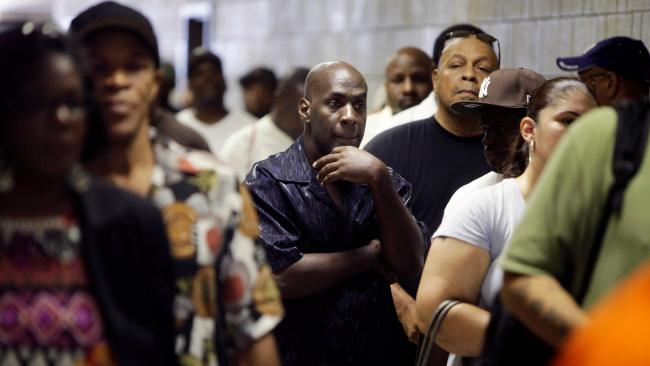(ThyBlackMan.com) It’s finally time that we have that long awaited talk about measuring black success. For far too long we have given many a pass when it comes to what they say and how they go about navigating what it means to achieve for the community. No, making money and being a celebrity isn’t your “charity” to bettering the lives of others.
And no, being amongst the elite status of white privilege doesn’t equate to it as well. There is historical and theoretical reasoning behind this. In 1961, reputable psychiatrist Frantz Fanon in his iconic literature Wretched of the Earth states:
“The gaze that the colonized subject casts at the colonist’s sector is a look of lust, a look of envy. Dreams of possession. Every type of possession; of sitting at the colonist’s table and sleeping in his bed, preferably with his wife. The colonized man is an envious man.”
But such a developed provocation of black success was first explored by the great W.E.B. Du Bois in his introduction of double-consciousness:
“It is a peculiar sensation, this double-consciousness, this sense of always looking at one’s self through the eyes of others, of measuring one’s soul by the tape of a world that looks on in amused contempt and pity. One ever feels his two-ness, an American, a Negro; two souls, two thoughts, two unreconciled strivings; two warring ideals in one dark body, whose dogged strength alone keeps it from being torn asunder.”
From a personal epiphany and a desire to motivate others in the community to excel proactively and not reactively to enacting progressive change, here are ten of the best ways I think we should start measuring black success:
1) Social responsibility is mandatory. If what you are doing does not have an outlook on improving the current conditions of others impacted, go back and find out why. There are many problems in our community that can be improved medically, culturally, socially, politically, and educationally. If what you are doing isn’t positively impacting that, there’s not much to root for.
not much to root for.
2) Money is not the only motive. Sorry, but being on Forbes 100 lists means nothing if it isn’t going to any programs that are bettering lives. Fortune is a blessing but can also become a curse if that is all that is being honored.
3) Advocacy is part of the brand. If you are not invoking any messages of change in your movement, your impact and purpose is nonexistent. If you are not able to rise to the occasion to do so, then it’s not true success you are striving for.
4) Your success shouldn’t be the only one. Many continue to tell their success stories and accomplishments, but whom are they mentoring? Put others on and encourage them to do the same. The community will not be strong if only one is being celebrated and others are staying in the dark.
5) Power comes from being progressively proactive. With all of this success, it is important that we encourage those with it to be very involved and out there doing more than just talking. We can speak change, but if we are not out there using our platforms for progress, it’s virtually worthless.
6) Tangible possession isn’t a validation of true success. The money and materialism is cute, but that isn’t an indicator that one has made it anywhere if there is nothing else being shown for it. Because we know that elite privilege teaches us that such possessions are given to those without any work put forward, it is even more imperative that we strive to do meaningful work that outshines the bling.
7) No one is ever too big to do service. If anything, it should be expected that a higher level of moral obligation be assumed for those who have more to do for those who unfortunately have less. If one is truly successful, this shouldn’t be an afterthought.
8) White validation isn’t the only indicator of success. There is a lot of encouragement for one to only feel legitimization when they finally reach “mainstream” or “white gaze” desirability. And while having a more broad and diverse audience is appreciated, it means nothing if the platform isn’t promoting positive messages or invoking social impact.
9) Corporations should work around your vision, not the other way around. Don’t compromise your values and ideals of success in the name of the companies that promise you huge figures. Because the true success will not come from the check, but the power to demand more for your representation than just money and fame.
10) Understanding that your presence isn’t charity and never will be. You made it, congrats. But your visibility alone will not help eradicate poverty, unemployment, discrimination, and other social injustices. So expect to do a little more than just tell people what you accomplished, but actually use your influence for good. For that is real charity people can actually see.
I write all of this to say that I’m tired of the Vanity Fair that has become black success in recent years. We need to stop placing vanity on the same scale of merit. It doesn’t matter “who wore it best“, but who is instead improving lives the best.
There used to be a time when our celebrities, socialites, and people of influence were involved in politics and social justice movements and not just about their own careers. Sure, some will wear a t-shirt or post a message on social media, but that doesn’t do a damn thing to help inspire others to actually do real work and mobilize the community.
At 22 years old, I want to see the return of the Harry Belafontes, Mohammed Alis, Nina Simones, and Maya Angelous. They were renaissance black movers and shakers that could entertain us and encourage us to create a better world and not just a better career.
For their work stands the test of time because they were the epitome of black success.
In 2014, let’s hope we can expect the same for our next generation.
Written By Ernest Owens
Official website; http://www.twitter.com/MrErnestOwens

















Leave a Reply